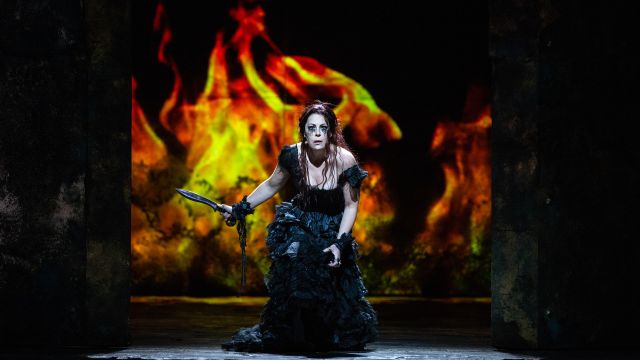Medea
The Metropolitan are to be congratulated for their initiative of filming and making opera more accessible to a wide audience, particularly those of us who do not live in the USA.
Their choice of Medea by Luigi Cherubini, composed in 1797 with a libretto by François-Benoît Hoffman and based on Euripides' tragedy of Medea and Pierre Corneille's play Médée has come out of left field as it is not commonly in the repertoire of most opera companies throughout the world.
The decision was brave and has paid off, Medea is a masterpiece in every way! It follows in the opera tradition of heroines sacrificing their lives to preserve that which they consider just.
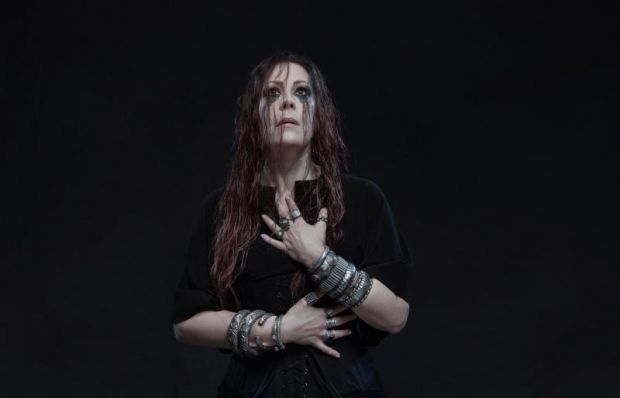
The story, briefly - the heroic warrior Giasone plans to abandon his wife Medea to marry Glauce the daughter of Creonte, the king of Corinth. In revenge Medea murders their two children and then commits suicide.
David McVicar’s design and production, along with Doey Luthi’s costume design and Paule Constable’s lighting design transports us to chapels, feasting halls and spaces that defy description through the use of great bronze panels that serve as a front curtain, various levels and a huge reflective surface that gives us a bird’s eye view of the stage and performers.
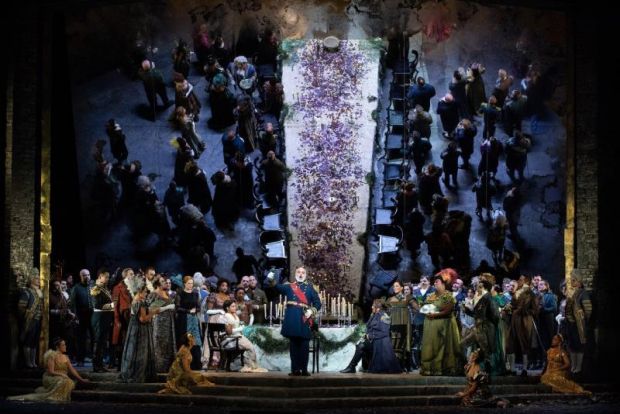
Carlo Rizzi’s orchestra soars recreating Cherubini’s complex score raising our spirits one minute then sending us crashing to the depths of a tortured mind.
The role of Medea is the opera equivalent of Shakespeare’s King Lear in that the role is huge with Medea being on stage constantly once appearing.
“Medea” is still defined by Maria Callas, who revived it to wild acclaim in the 1950s and whose slew of coruscating recordings of the piece have kept her unavoidable.
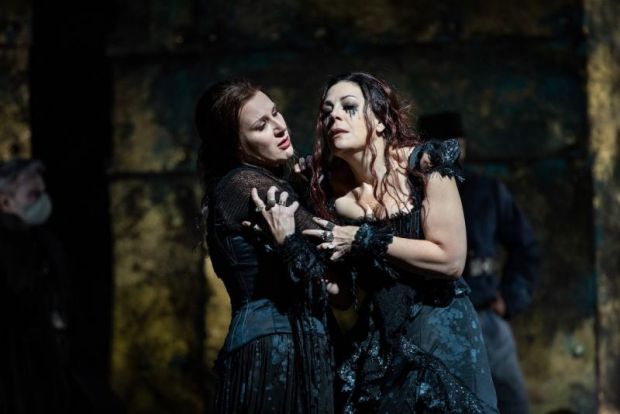
Initially, Cherubini teases us for some forty minutes before Medea’s arrival; a snarling overture, a chorus of serving-women, a lively aria, a march, another chorus, another aria, a trio until finally she appears in a black dress reminiscent of a spider web with lank hair and deep shadows under her eyes.
Sondra Radvanovsky, soprano extraordinaire, masters every physical, vocal, and emotional demand to present one of literature’s psychotic heroines.
Physically, there is clearly an intent to explore Medea’s base qualities and her increasing violent nature as her rage takes over. She slithers serpent like around the stage or crawls on all fours anchoring her to the ground. Even in moments where she is not singing, Radvanovsky possesses the stage with her semi-mad stare, emphasizing Medea’s sense of loneliness and exile.
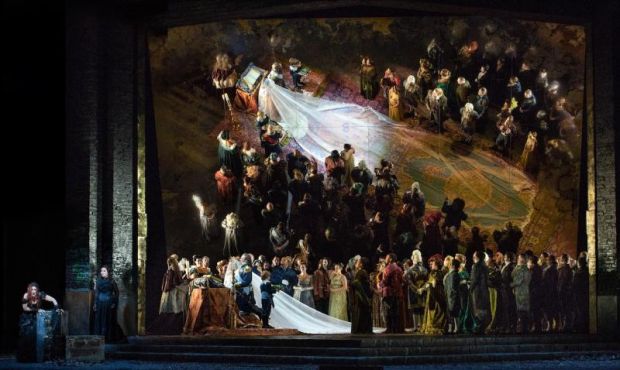
The final act is hypnotic as Radvanovsky shifts from one emotional extreme to another with even greater intent. The bite in her sound as she menaces one of her children, knife in hand is disturbing. Her aria “Del fiero duo” is sung with warmth at the beginning but also full of vocal contrast that emphasizes the two women raging within her. She caps it all with her “Atre furie, a me date orsù questo sangue;” this is Radvanovsky at her most vocally impressive and imposing.
Matthew Polenzani brings impressive warmth to the role of Giasone, giving him much needed complexity, Polenzani’s tender vocalization during “Or che piu non vedro” expresses honesty in his feelings for Glauce. Even as he gives in to Medea during their act two duet, Polenzani’s gentle interpretation gives you a sense of the relationship that had once existed. It makes that tragedy even more plausible and ultimately satisfying. But when called upon to deliver violent vocal lines, particularly as he spurns Medea throughout the first act and start of the second act duet, Polenzani’s normally round sound takes on a more acuminate quality.
Janai Brugger imbues Glauce with a volatile energy. She gives us a solid rendition of “O Amore, vieni a me!” with swift coloratura lines and pointed high notes.
Michele Pertusi’s Creonte, delivers a stentorian bass to the harsh king. Christopher Job’s brief appearance as the leader of the King’s guard makes a lasting impression as he announces the arrival of Medea with a steady but brooding bass.
The themes of Medea are passion, rage, revenge, greatness, and pride. The Metropolitan’s new production gives us these and more! It is a compelling retelling of the original Greek myth and perhaps a portent of other little performed operas from this company.
Barry Hill
Subscribe to our E-Newsletter, buy our latest print edition or find a Performing Arts book at Book Nook.

